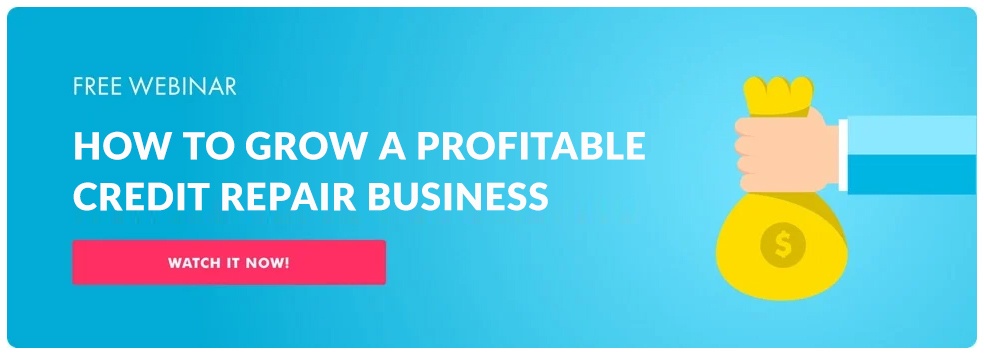To keep up with the ever-growing desire to wear the best clothes, drive the fanciest cars, play with the newest gadgets, and more, many of your so-called wealthy neighbors may be credit-poor and drowning in debt.

An attendee signs in at the 2019 Credit Repair Expo to learn more about helping clients with credit repair.
In 2019, the pressure to “keep up with the Joneses” is high in wealthier parts of America.
According to 2018 statistics about debt, the wealthier you are, the more likely you are to hold on to debt month over month.
Many of these household decision-makers in higher income households continuously compare themselves to their neighbors, accumulating material goods like houses, cars, clothes, and more. This constant comparison compels some Americans to spend, spend, spend to keep pace with those around them.
“People in the highest 10% of annual income had an average credit card debt of $11,200, according to a 2018 ValuePenguin analysis of Census and Federal Reserve reports.
They quickly become overwhelmed by excessive credit card debt, as they’re often living outside their means. On their quest to feel a sense of belonging through material possessions, people quickly find themselves in over their heads. Depending on the severity of their debt, they may even need help with bankruptcy credit repair. They may not look like they have debt based on their standard of living, but debt can happen to anyone - and it can happen fast.
Below, we’ll explore how dedicated and passionate credit repair business owners like you can help chip away at this credit repair stigma by channeling your inner credit hero. We’ll also explore how biased assumptions about who needs credit repair can inhibit your business growth.
Why People Don’t Talk Openly about Credit and Debt
In 2019, the lines of communication seem to be more open than ever. Beyond traditional face-to-face interactions, modern technology has equipped us with a variety of digital channels to connect with family, peers, neighbors, and coworkers. We can talk to people via text, email, social media, and messenger apps 24 hours a day, seven days a week. The Internet has made talking about difficult topics much easier, while also empowering us to create and nurture personal and professional relationships at our fingertips.
With so many channels through which we can communicate, why is it so difficult to talk about credit without feeling uncomfortable? Because in America, talking about credit has been considered more or less taboo. Similar to politics and religion, inquiring about how much debt your friend or a family member has - or openly talking how much debt you have accumulated - can create a very uncomfortable social situation.
Suffering in Silence and the Potential Repercussions
Those who continue to accumulate debt feel helpless and stressed about money; as a result, they often keep their debt private. Many begin to experience what’s known as debt depression, a negative state of mind that infiltrates every area of their lives and affects their overall happiness and well-being.
The negative repercussions on people’s mental health are serious, as some studies show that the stress you can experience as a result of debt mirrors the stage of grief. Korrena Bailie, a financial journalist and senior editor of personal finance at Wirecutter, echoes the power that debt can have over a person’s state of mind and life situation:
“There are few things that can cause joy, shame, contentment, anxiety and stress the way that money does. If your finances cause you stress and anxiety, it’s natural to want to keep this to yourself because you might feel embarrassed or ashamed about the decisions you made.”
How to End the Stigma of Talking about Debt
As a credit repair business owner, you can help your clients conquer these negative feelings by educating them about the fundamentals of having good credit, encouraging them to open up about their credit struggles, and guiding them down a better financial path. To run a credit repair business that changes people’s lives and empowers them to secure loans for houses, cars, and other material goods, it’s essential to connect to your clients to keep the lines of communication completely open.
- Ask questions in a non-judgmental way
- Encourage them to open up about their financial struggles without fear or shame
- Help them identify and document their goals and dreams
- Check up on your clients regularly
People’s financial health affects every area of their lives. They need to feel safe to talk about their spending habits, their fears, and their dreams without fear of being judged. As a credit repair specialist, you truly can become the credit hero that helps those with poor credit scores overcome anxiety and get their finances back on track.
Don’t Assume You Know Who Has Bad Credit (and Who Doesn’t)
Whether you’re thinking about starting a credit repair business, or whether you’re already up and running, you know that unfortunately, bad credit is designed to trap your clients forever. But during your quest to take power away from banks and credit card companies and give it back to the people, many credit repair specialists like yourself may be carrying an unconscious bias about who has bad credit and who doesn’t.
Remember: anyone can accumulate bad credit that leads to a poor credit score - even people who are considered wealthy. You can be a millionaire, but that doesn’t guarantee you have good credit. It’s all about your habits. There’s a misconception that people with high incomes can’t possibly be in debt; however, people with high incomes can end up in debt for these reasons:
- They spend more than they earn
- They may carry debt from a previous time as a result of student loans, business ventures, or medical expenses
- They assume their income will always be able to cover their debt
- They don’t save enough for a rainy day
To truly serve and empower as many clients as possible and see your credit repair company thrive, it’s crucial to realize that all kinds of people need help building their credit, whether they’re considered “poor” or “rich” by American standards. If you’re a business owner whose only focused on helping low-income people repair their credit, it’s important to acknowledge that you’re missing an entire segment of consumers who are desperate for your financial coaching.
The truth is, all kinds of people have poor credit, regardless of their race, religion, or socioeconomic status. It’s your job as a credit repair expert to help erase the stigma of talking about debt and bad credit by encouraging healthy and open dialogue.
In doing so, you’ll give people with poor credit scores the tools they need to turn their financial lives around. This openness will create a ripple effect that not only improves their credit scores but also gives people from all different backgrounds permission to seek help with credit repair so they too can live their best financial lives.
If you’re ready to help expand the dialogue about debt through helping people from all backgrounds repair their credit, explore this FREE live credit repair training today.













